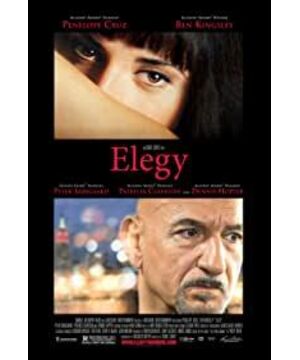What makes a movie or novel so moving (or sad or heart-wrenching, or makes you want to leave the movie theater and save a beautiful woman by pushing a fast-moving truck on the road) is not because of the story How touching the plot itself is, but because of the sense of substitution-behind the screen (behind the pages of the novel) hides a..., no, it's not the director or the author, it's you, hiding a you in front of the screen.
When Tonatore was telling the story of his childhood in Paradise with Evert, he probably knew that in a few years there would be someone you would immerse in his films, but he didn't know what you were. The reason for the state of being caught in it. In fact, I am reminded of the movie that my hometown would play in the drying field every year before the end of the new year and the beginning of the school year. It happened to be the day before the school started, the eleventh or tenth day of the new year, no more or no less, almost every year, because the second The school is about to start, and my mother doesn't let it be too late, so I never finished it, and I pouted to death with anger. Behind the drying yard is the high chimney of the sugar mill. As Zhang Yimou said in "Once Upon a Movie" or "Everyone Has His Own Movie", sometimes he almost fell asleep while waiting for the movie, and sometimes he was on the screen. On the other hand, I sometimes beat the shadows of dogs and chickens with my hands on the screen. These memories of things when I was a child were moved by my sense of substitution when I watched "Paradise Cinema" - it reminded me of some soft things in my heart about movies when I was a child. You or he, it may be a little different, but in the end Tonatore will move you, in the form of the audience yourself.
Substitution refers to putting yourself into it and becoming the protagonist when watching movies or reading or listening to music - you do it subconsciously, and you will always confuse the scenes in the novels in the movie with the scenes you have experienced. , those words that other people say to the protagonist in the movie, those words that the protagonist says to others, those autumn winds and leaves, those lightning flashes, thunder, birds and flowers by the river, and the flying dust dancing lightly under the sunlight in the old house, you will feel deja vu-then you Moved, said to myself that this is my life or this is the possible ending of my story.
Of course, the most profound feeling of substitution I can remember is watching "Mom Loves Me Again" when I was 7 years old. I cried so hard, and my aunt and uncle laughed at the side. I thought that the mother was gone and was pitifully drenched in the rain. The child is me.
Watching this "ELEGY" today also has a strong sense of substitution, because this is a sad story, so I am also sad.
Literature professor David, 60, falls in love with student Conswella, 24. Conswella, 24, loves no one but David, a 60-year-old literature professor. This is the story.
David shows Conswella Goya's "Maja in the Dress" instead of "Maja in the Nude," and shows Penelope Cruz, the Spanish beauty, the eyes of another Spanish beauty in the late 18th century , say, like. What I'm not sure about is whether the director hints at the beginning that David loves Conswella's eyes, really loves her, not just her graceful body.
David and Conswella sleep rough on the beach. In the early morning, in the sea breeze, I patted Conswella's hazy sleepy eyes. Everything shows that David loves her.
But what makes the film substituting is David's growing sense of "inappropriate"—a beautiful thing, that bad "not for me" feeling when you can't grasp it. To be precise, it is "difficult to grasp", because others will find it inappropriate, so "difficult to grasp". David thinks Conswella will fall in love with another man younger than him. That sad feeling of deep love but foreboding loss will arise spontaneously when standing on a crowded street. One night, when I was watching the dim yellow street lights speeding backward on the highway back to Hangzhou, and the other night, when I was walking on the sidewalk under the viaduct, I had this feeling.
So, David didn't dare to go to Conswella's house party, so David thought it would be better for him to cut off the relationship.
But David was wrong. Two years later, Conswella, with her hair cut short, came to David's house and told him that she had breast cancer and that she had never loved another man. Conswella slowly undressed and asked David to film "Maha Naked" to tell him she loved him. Conswella's eyes were still as beautiful as Maha's, but a little different because they were tears of sadness.
In the ward after the surgery, Conswella said, "10 years later, reading the same book will feel different again," which was what they said when they first met David and taught them a lesson. David said, here I am, by your side.
But outside, the rain was pattering, writing sad sentences on the window glass. Although the lilies in front of the window are blooming just right.
View more about Elegy reviews











